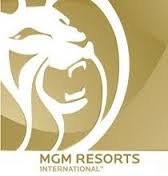Macao’s grip on its gambling monopoly may be getting slippery. According to this article in Yahoo Finance, a film and real estate mogul named Zhang Baoquan has opened the Mangrove Tree Resort World, the first “cashless casino” on China’s Hainan Island, an hour’s plane ride away from Macao.
Quoting the above article: “the casino bar marks the Chinese government’s first tacit approval of a gaming concept outside of Macau.” MGM Resorts International (NYSE:MGM) has followed suit, opening a hotel on the island in preparation for further expansion of gambling in the country, and Caesars Entertainment Corp (NASDAQ:CZR) is set to open a hotel of their own in 2014.
It works as follows: “players buy tickets costing 500 yuan ($80) each. Bets range from 20-2,000 yuan in the mass area, while the high-limits area is set at 2,000-100,000 yuan. Big whale punters will be able to bet over 100,000 yuan once the VIP room opens on the second floor.”
If you win, you receive Mangrove points, which you can use to purchase items like an iPad, artwork, or, in the near future, luxury brand items.
Betting 100,000 yuan is the equivalent of about $16,000, much more than is allowed at most tables in Las Vegas. The difference is, if a player wins, the casino doesn’t even have to pay them cash, just gouge them on overpriced items. The mere fact that they have guests willing to bet $16,000 at such odds shows the voracious demand of Chinese gamblers.
The Blowing Government Winds
When I visit my friend who lives in Las Vegas, she semi-jokingly breathes in a deep relaxed breath and thanks the skies, referring to each plane flying overhead that is landing at McCarran airport as “tax payer transports.” At one time Vegas used to be the only place in the United States that offered legalized gambling. Easy to understand why Nevada had/has no personal income tax- taxes were exported as the payees were imported.
Other jurisdictions in the US saw the oversize profits gambling brought to Nevada and saw them as an easy ticket to easing their own financial burdens, and today gambling in one form or another is legal in many states.
While Las Vegas built up such a massive infrastructure of entertainment and behemoth buildings, they still have a competitive advantage that would be hard for a local casino in Arizona or Michigan to overcome, the local casino has a distinct advantage of location, and for the casual gambler not seeking to party-hearty, that generally overrides the advantages of Vegas. Obviously, if Vegas were still the only gambling destination in the world, the profits would be far far larger.
The Rest of The World
Hey, the rest of the worlds’ governments don’t want to lose all that tax revenue. If you legalize gambling before others do, you stand to import a lot of tax payers. Better yet, model the Singaporeans, who recently allowed to open two of the world’s most profitable casinos, but in an effort to protect its citizens, the paternalistic government tries to discourage them from gaming activities, charging $100 per admission for 24 hours, additionally making it very easy for family members to have them banned from playing. Gambling has a negative social cost and that cost must be exported for the locale to gain.
The Japanese are considering modeling the Singaporean model, the Philippines and Vietnam are in the process of opening casinos, and thus there are more options for the Chinese gambler, thus, not wanting to see the tax dollars literally fly away, they will likely be legalizing gambling in more jurisdictions, ending Macao’s Chinese monopoly.
What It Means
For Wynn Resorts, Limited (NASDAQ:WYNN), Las Vegas Sands Corp. (NYSE:LVS) and MGM who already have casinos in Macao, honestly, it won’t mean much in the near term. There is so much pent up demand in China and gambling- it’s almost their national past time.
However, they might have to compete and give away more to attract the high rollers (whales) than they used to and as gambling spreads throughout Asia, much like Las Vegas, the oversized margins generated will gradually reduce in size. The expansion of legalized gambling throughout Asia will likely mirror the effect of spread of gambling in the US on Las Vegas and Atlantic City.
To gain an understanding of how important VIP play, I cite fellow Motley Fool writer Travis Houim and his column on understanding casino earnings which is really an excellent lesson in reading the quarterly report.
| Casino | Rolling Chip Volume | Rolling Chip Win % | Expected Win % | VIP Revenue |
|---|---|---|---|---|
| The Venetian Macau | $11.2 billion | 3.32% | 2.7%-3% | $372 million |
| Wynn Macau | $27.6 billion | 3.08% | 2.7%-3% | $850 million |
| City of Dreams | $19.5 billion | 3.2% | 2.7%-3% | $624 million |
The point of inserting these numbers is so you can be aware just how dependent earnings, especially for Wynn Macao, are dependent on VIP play, and how the expansion of gambling, and the various new junkets will put pressure on margins as they will offer these whales percentages of losses back/ more goodies to keep them playing at their tables.
Update
According to this Reuters column the cashless casino was just closed this morning, several days after this column was originally written. There is no doubt that interests in Macao used what leverage they have in the government to get the project shut down. Ahhh … the soap opera of big business.
Nevertheless, economic factors, much like in the US, will eventually see gambling expand throughout China. You can bet on it.
The article Macao’s Gambling Monopoly in China Ending? originally appeared on Fool.com and is written by Margie Nemcick-Cruz.
Copyright © 1995 – 2013 The Motley Fool, LLC. All rights reserved. The Motley Fool has a disclosure policy.




